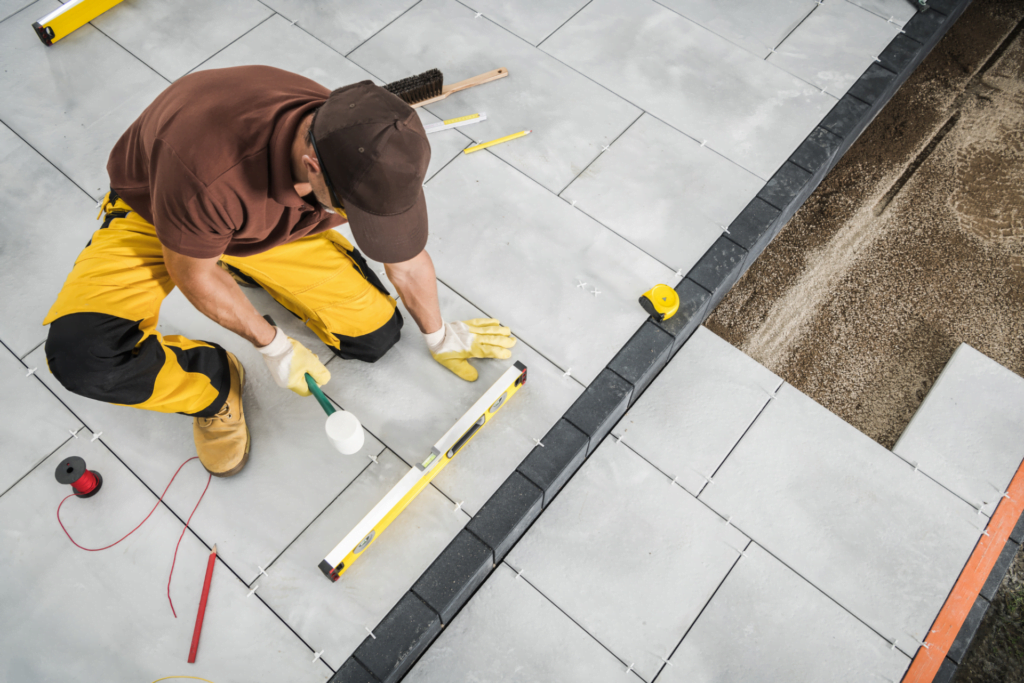Why create an outdoor office space?
Hybrid and home working is here to stay and using spare bedrooms or sitting at the kitchen table might be getting old. Utilising any space you have outdoors can be a great way to get that ideal work-life balance when working from home.
This can be done easily by converting a suitable shed or outbuilding or even building a brand new garden office from scratch. Modern garden rooms can be properly insulated so you can use the office space all year round. Once you’ve made sure the building is warm and watertight you can plan out how to decorate the interior. Taking the time to decorate the space to your taste will help to transform the working space into your own personalised dream office. A good place to start with interiors is to consider wall colours and flooring options.
What is the best flooring for a garden office?
Choosing the best flooring for your garden office is a matter of taste as there are several suitable options available:
Hardwood flooring
Pros
Hardwood flooring looks great and can last for a long time with the right care. There are many different types of wood you can choose from to truly personalise your garden room.
If you have wooden furniture, you can find a similar wood and stain to make your floor match. Using lighter wood can make your garden room look larger, while darker wood could make it look cosier.
Cons
Hardwood floors are hard to maintain, they need regular oiling and are vulnerable to moisture which is an issue that is more likely to occur in an outdoor space. It is much easier to maintain laminate flooring or wood effect tiles.
Laminate flooring
Pros
Carpet has many design options, if wood doesn’t fit with the feel of the garden building, then carpet could work. There is a large range of colours, textures and feel of floor which is cosier than laminate.
Cons
Laminate flooring is still made of wood so is not moisture proof which is an issue with an outdoor space, and cannot be refinished like hardwood flooring. While it is a cost-effective solution, it is not as hardy as wood effect tiles.
Carpet
Pros
Carpet has many design options, if wood doesn’t fit with the feel of the garden building, then carpet could work. There is a large range of colours, textures and feel of floor which is cosier than laminate.
Cons
Similarly to laminate and hardwood floor, carpet is not resistant to moisture and will get messy quicker. It is a lot harder to clean beyond vacuum cleaning the area.
Tiles
Pros
Tiles come in a variety of styles, colours and textures, and are very easy to maintain. There are options for plain tiles, patterns, wood effect, bevelled edges, flat edges and more.
Made from a range of materials from porcelain to ceramic tiles, there are options for everyone to create the garden office flooring they need with this long lasting and cost-effective option. Tiles are made from clay and other raw materials so are also better environmentally because trees do not need to be chopped down to create it.
With the option for underfloor heating and the fact that tiles can withstand heat sources, this ensures that your garden room flooring is suitable for all weather conditions and can be used year-round.
Unlike the other options, most tiles can withstand moisture – especially bathroom tiles! If you have some DIY skills, it is possible for you to install your own tiles in your garden room making it even more cost-effective.
Cons
Tiles warm up and cool down based on the temperature, so in the winter months, your feet might get chilly without underfloor heating! However, in the summer, the tiles away from direct sunlight may have cooling properties.
While there is an assortment of options, from wood flooring to rubber mats, tiles are the way to go. With a variety of designs, durability with weather changes, easy to clean and easy installation – you can’t go wrong. If you want wooden flooring without the maintenance, you can choose from our range of wood effect tiles.
Which garden office flooring is the most durable?
Unlike hardwood flooring which needs a lot of maintenance, ceramic tiles are the most durable and are a great choice for those looking for a solution that is hard-wearing, high quality and in keeping with your style.
Carpet, while a cosy choice, is the least durable and most likely to grow moss over winter, and doesn’t give the same luxurious feel as tiles or solid wood. Ultimately, to achieve that rustic feel and enhance the living space, installing tiles is the most durable and sensible option. There are a range of colours, in all kinds of styles and an essential part of having a garden office is being able to make your space work for you.
Are tiles cost-effective?
While the upfront cost for some tiles can be more than hardwood floors or carpets, the maintenance and longevity of tiles mean that it is more cost-effective and is a long-term solution. Engineered wood flooring is another option – however, it is more susceptible to weather changes, and humidity levels and is harder to maintain. When considering the more appropriate floor option, we highly recommend tiles as a low-maintenance option for your garden office flooring.
How do you insulate a garden room floor?
Insulating your garden office is important to keep the office space functional for longer stretches of the year. Insulation allows your office to be cooler in the summer and warmer in the winter.
If you’re building your shed with concrete foundations, then the best practice would be to insulate underneath the concrete using sand which will help to protect the damp proof membrane which prevents the concrete from gaining moisture.
However, if your garden room is already built, it is entirely possible to retrofit insulation by using raised floor tiles – this means that the insulation is placed between the foundations and the tiles, raising the flooring slightly. Raised flooring is waterproof, hardwearing and easy to maintain.
Adding rugs, cushions and a small heat source can ensure the room remains warm in the winter along with the insulation.
Garden office flooring ideas
When deciding which tiles you want to use, consider the overall look of your garden office – is it a posh shed where the marble look would feel fancy, or is it a rustic feel? Will you use the garden office during the winter where you might want it to be cosy?
Utilise greys for an earthy feel
Let your garden space speak for itself, with rustic rugs or luxurious furniture, and let the flooring accentuate what you’ve done with the garden. Allow the colours of the fauna to make your office space calm. Using large, cool grey tiles allows the room to feel larger than it is, makes it easier to clean and doesn’t detract from the surroundings, enabling you to immerse yourself in the garden.
Decorate your office flooring with colourful prints or neutral furniture to achieve your desired outcome.
Take a look at our grey tile selection:
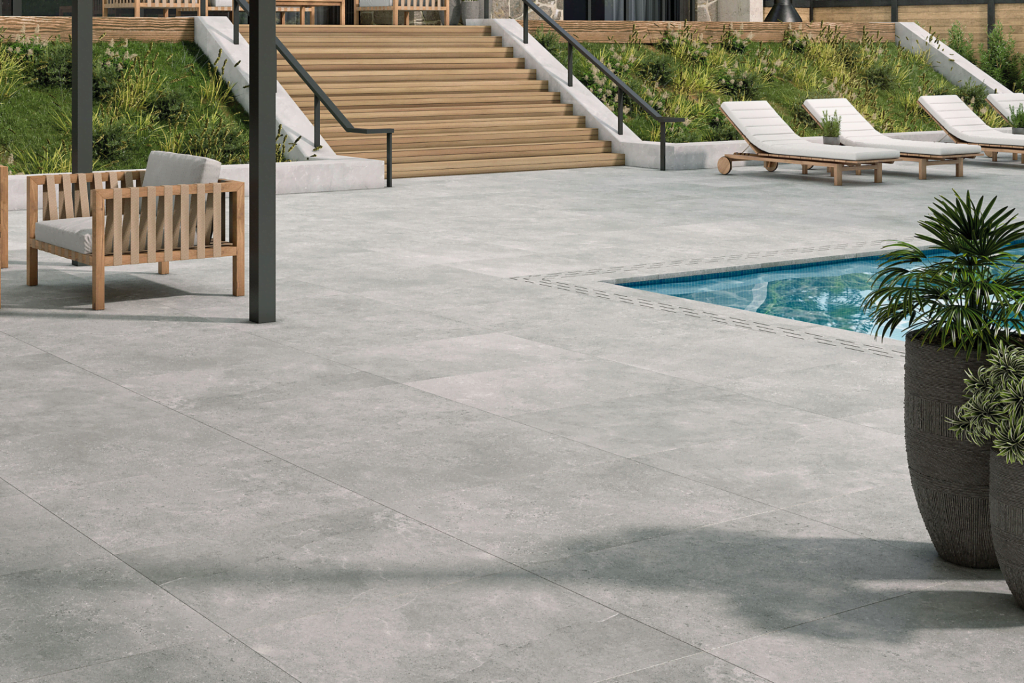
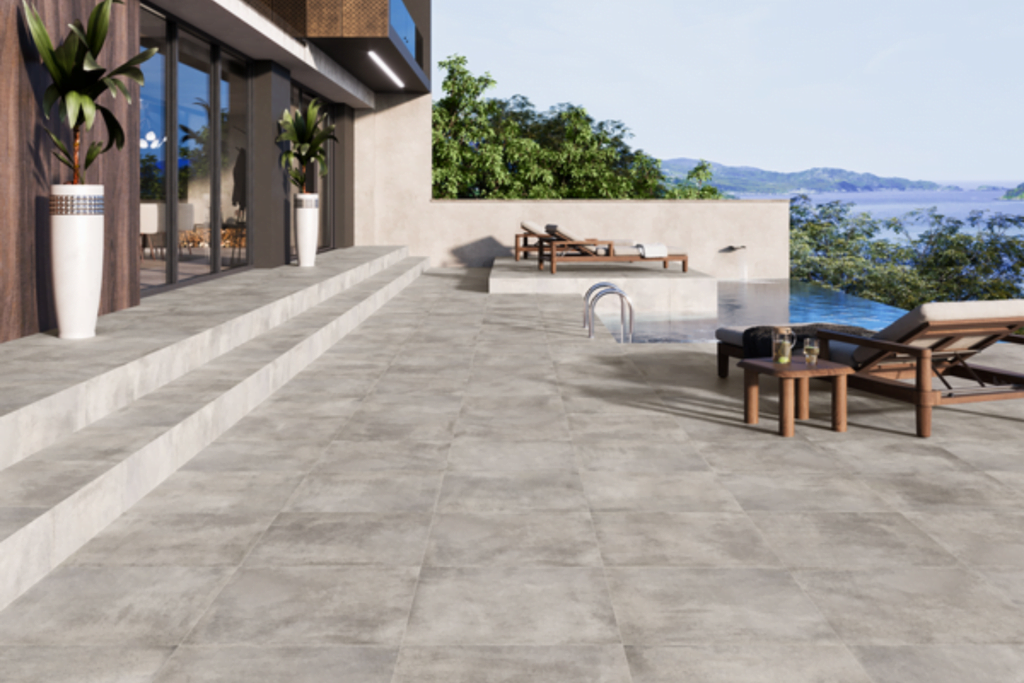
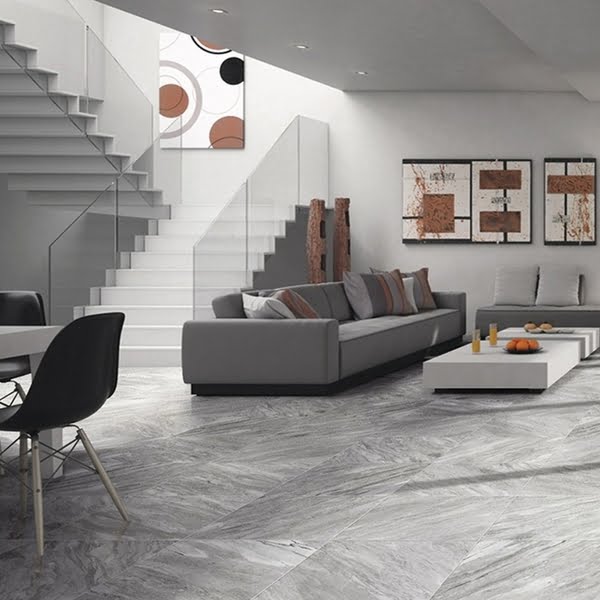
Enhance the garden with rustic patterns
If you plan on spending a lot of time in your office garden, the whole space needs to reflect you and your personality – if you prefer patterns, then this might be more up your alley! Draw in the best tones and hues from the natural environment and enhance your garden room.
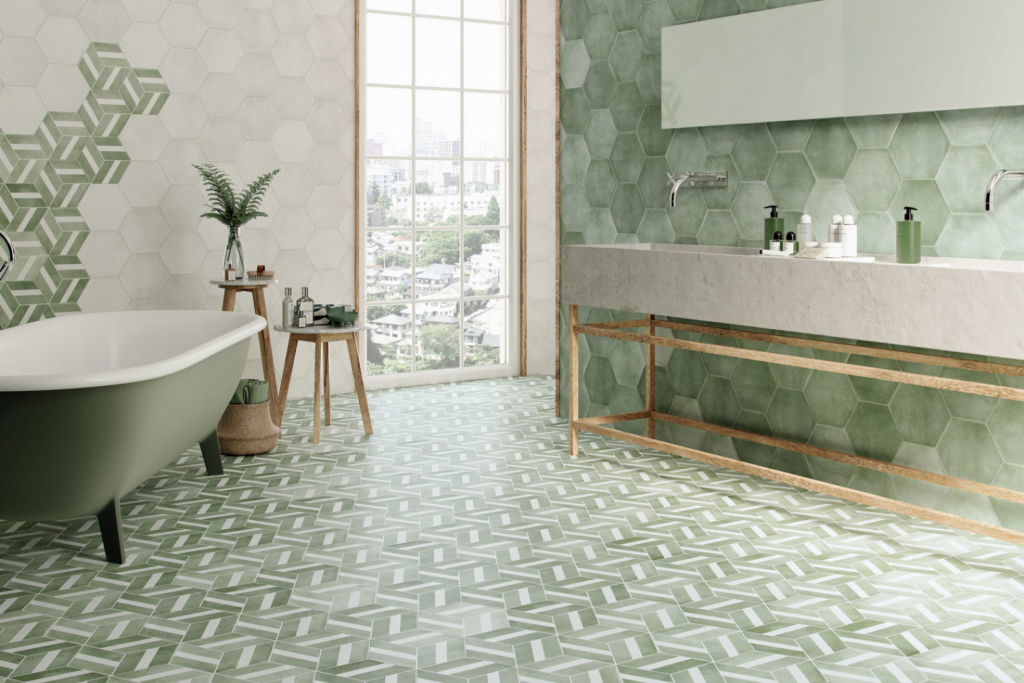

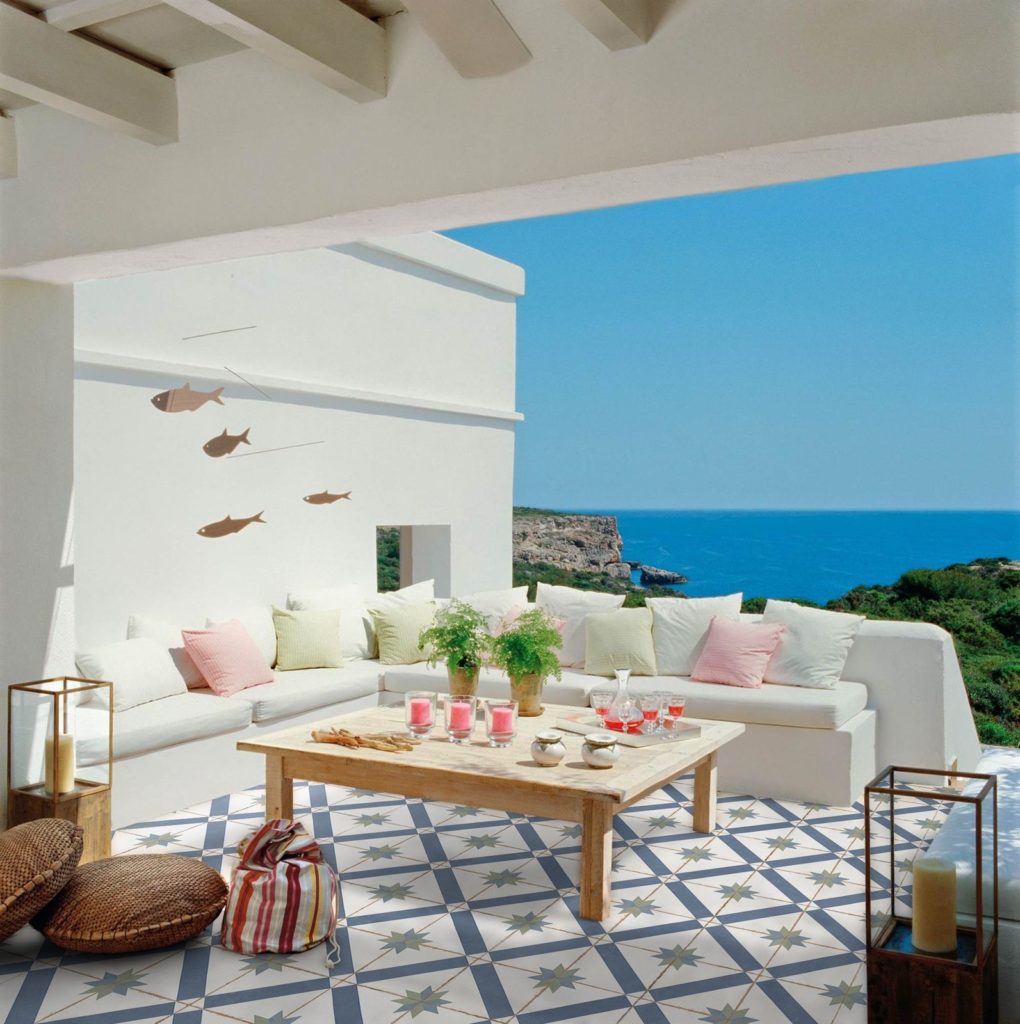
Go back to your roots with natural looking tiles
If greys and patterns aren’t your thing, maybe tiles that look like wood or in earthy tones are more your style. Unlike real wood, this vinyl flooring won’t warp and will keep your garden office looking lovely all year round.
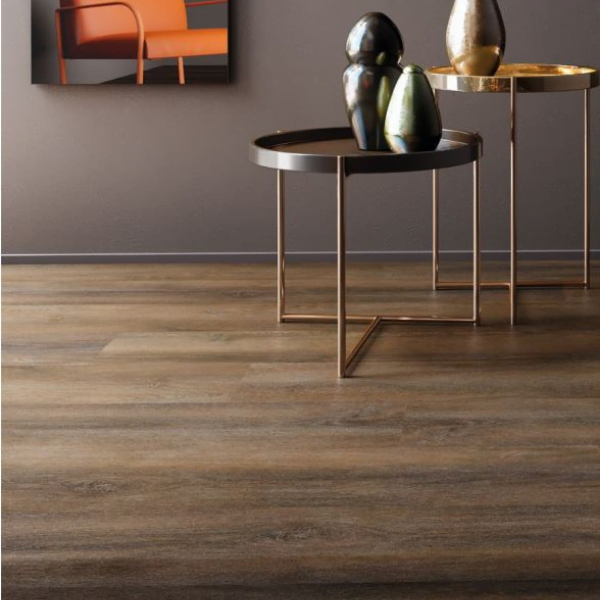
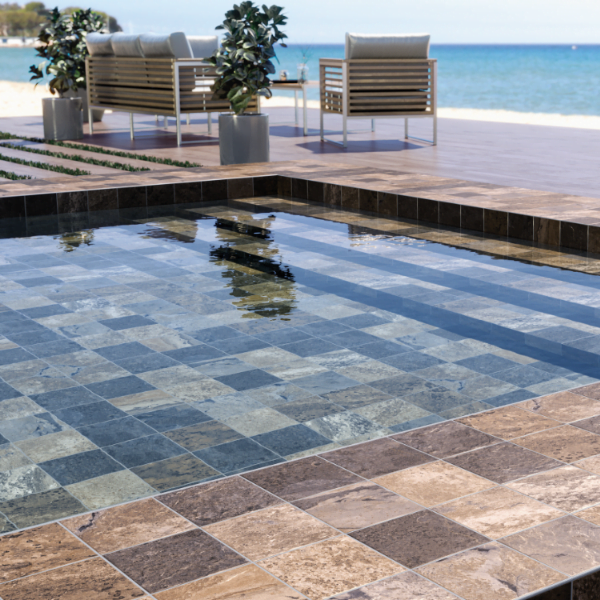
Need more inspiration?
Explore our inspiration page, browse our tile and vinyl flooring selection or contact our friendly team at 01903 775778 or email [email protected]

